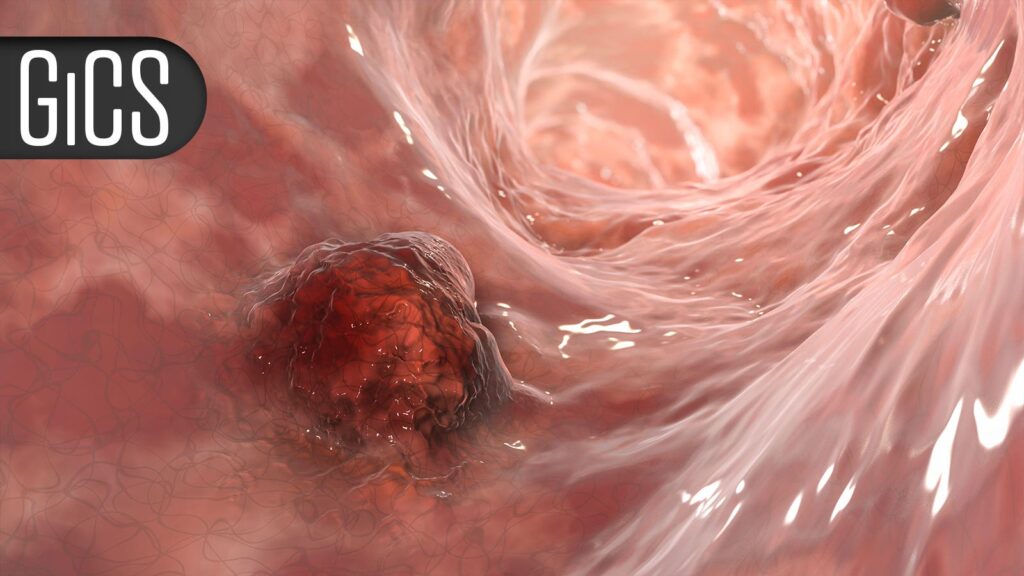SAN FRANCISCO — Three-fourths of patients with unresectable gastroesophageal cancer converted to resectable and had clear margins after treatment with a chemoimmunotherapy combination, a small Chinese study showed.
Results showed that 39 of 52 patients had clear margins (R0) after surgery, following treatment with the PD-1 antibody camrelizumab and chemotherapy. Nearly a fourth of patients achieved pathologic complete response (pCR) with the systemic therapy, while objective responses occurred in close to 90% and almost all patients had disease control.
Median progression-free and overall survival (PFS; OS) had yet to be reached, but the respective 3-year estimates were 56.9% and 62.8%, reported Qirong Geng, MD, of Fudan University Shanghai Cancer Center, at the American Society of Clinical Oncology (ASCO) Gastrointestinal Cancers Symposium.
“[The study] preliminarily shows promising results of providing a new conversion drug treatment option for patients with initially unresectable locally advanced and limited metastatic gastric/gastroesophageal junction [G/GEJ] adenocarcinoma,” said Geng. “These findings deserve further evaluation in prospective, randomized, controlled studies.”
Conversion therapy has become a hot topic among specialists in gastrointestinal cancers, said Pamela Kunz, MD, of the Yale Cancer Center and Smilow Cancer Hospital in New Haven, Connecticut. Ongoing efforts focus on strategies to shrink organ-involved and peritoneal metastases.
“In the past we would never have considered thinking about organ metastatic disease or peritoneal disease as something that we could treat with anything but cytotoxic chemotherapy,” Kunz, who is an ASCO expert, told MedPage Today. “The idea that certain patients may be amenable or actually getting to surgery, it does sort of ‘kick the can down the road.'”
“We know that it helps extend life, although I am still not convinced that these are going to be curative surgeries,” she added. “A way to frame this study is that it’s promising. It’s certainly not randomized. We need a much larger study.”
In her introductory comments, Geng agreed with Kunz’s assessment that unresectable locally advanced/metastatic G/GEJ cancer has a poor prognosis, and chemotherapy is the principal treatment. The AIO-FLOT3 trial provided early evidence that conversion therapy might improve outcomes in patients with limited metastatic G/GEJ cancer.
In an effort to “kick the can” again, investigators designed a phase II trial to determine whether adding immunotherapy to standard chemotherapy might improve outcomes in patients with unresectable locally advanced/limited metastatic G/GEJ cancer.
The trial design called for upfront camrelizumab plus nab-paclitaxel, oxaliplatin, and 5-fluorouracil, with or without trastuzumab, depending on the cancer’s HER2 status. Response assessment occurred after three cycles of systemic therapy, and patients without progression proceeded to surgery, followed by an additional nine cycles of chemoimmunotherapy.
Eligible patients had unresectable locally advanced or limited metastatic disease (single-site metastases). They had at least one measurable lesion, an Eastern Cooperative Oncology Group Performance Status of 0-1, and no prior therapy.
The primary endpoint was the percentage of patients who achieved R0 resection. Prespecified statistical considerations assumed a 48% R0 rate with standard therapy (based on the AIO-FLOT3 trial), improving to 70% with the addition of camrelizumab. Secondary endpoints included objective response rate, disease control rate, pCR, PFS, and OS.
The primary analysis included 52 patients who underwent surgery. Eleven patients had locally advanced disease and 41 had limited metastatic disease. Ten patients had HER2-positive tumors, four had tumors that were microsatellite instability-high/mismatch repair deficient, 38% had a PD-L1 composite positive score ≥5, and a similar percentage had unknown PD-L1 status.
The primary analysis showed that 75% of patients achieved R0 surgical resection. Nine (23.1%) patients had pCR, 46 (88%) had objective responses, and all but one of the patients had either an objective response or stable disease.
The most common grade 3/4 treatment-related adverse events were neutropenia (36.5%), leukopenia (9.6%), and thrombocytopenia, anemia, and febrile neutropenia (3.8% each). Ten patients (19.2%) had immune-related adverse events, the most common being myocarditis (9.6%). Two cases of grade 3/4 adrenal insufficiency and dermatitis occurred.
Disclosures
The study was supported by Hengrui Pharma.
Geng and co-investigators reported no relevant relationships with industry.
Kunz reported relationships with Bristol Myers Squibb, Foundation Medicine, Advanced Accelerator Applications/Novartis, and RayzeBio.
Primary Source
ASCO Gastrointestinal Cancers Symposium
Source Reference: Geng Q, et al “Conversion effects of PD-1 inhibitor camrelizumab combined with nab-POF regimen in patients with initially unresectable locally advanced or limited metastatic gastric or gastroesophageal junction adenocarcinoma: FDZL-001 trial” ASCO GI Cancers 2025; Abstract 334.
Please enable JavaScript to view the comments powered by Disqus.
Source link : https://www.medpagetoday.com/meetingcoverage/mgics/113922
Author :
Publish date : 2025-01-24 17:34:03
Copyright for syndicated content belongs to the linked Source.
